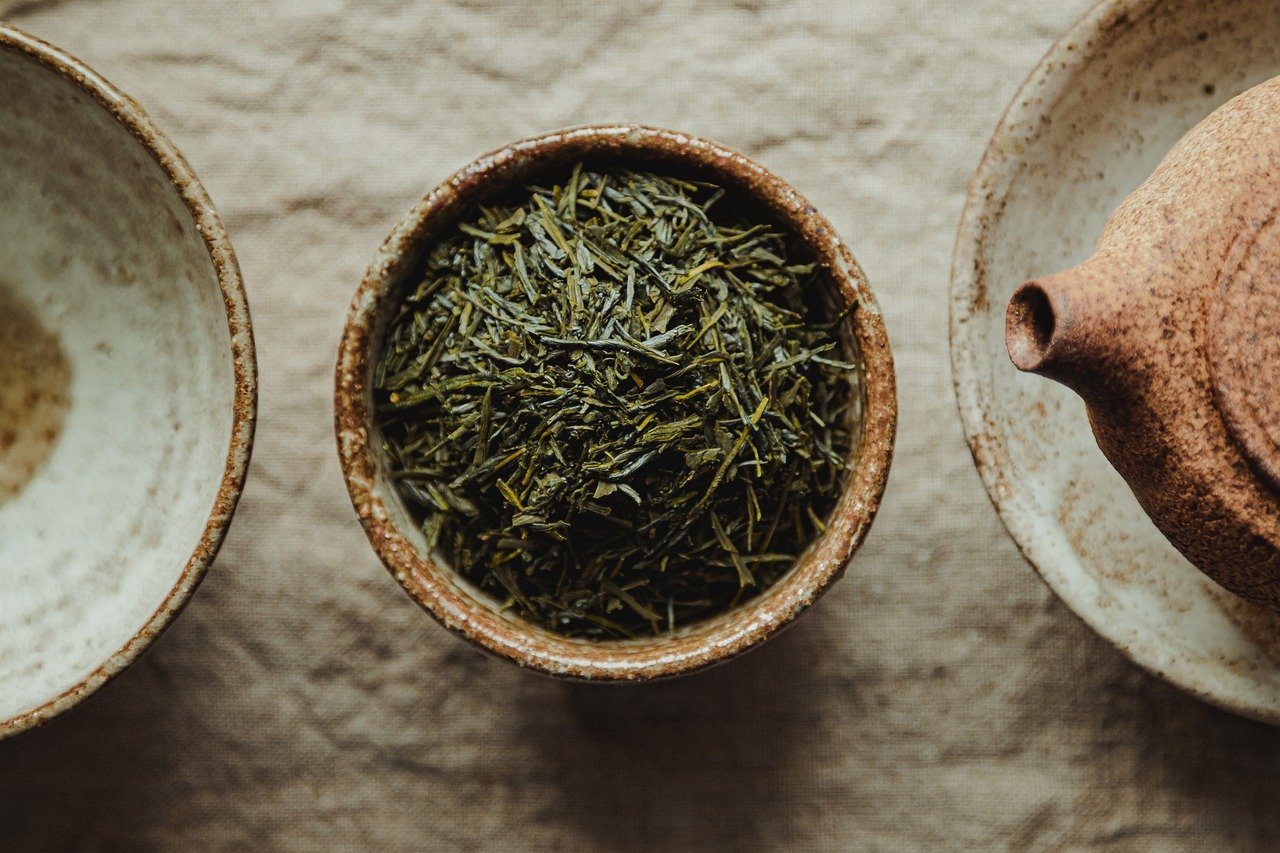Health Benefits Of Japanese Green Tea: From Antioxidants To Weight Management
Get ready to discover the amazing health benefits offered by Japanese green tea! From its powerful antioxidants to its potential in weight management, this traditional Japanese beverage is packed with goodness. Whether you’re looking to boost your immune system, improve your mental clarity, or enhance your overall wellbeing, Japanese green tea has got you covered. So grab your cup and get ready to sip your way to a healthier you!

1. Antioxidant Properties of Japanese Green Tea
Japanese green tea is known for its high antioxidant properties, making it a popular choice among health-conscious individuals. These antioxidants help protect the body against oxidative stress, which is caused by harmful molecules called free radicals.
1.1 High Content of Catechins
One of the reasons why Japanese green tea is abundant in antioxidants is due to its high content of catechins. Catechins are a type of flavonoid that have been shown to have strong antioxidant effects. These powerful compounds help neutralize free radicals and prevent them from damaging healthy cells in the body.
1.2 Protection Against Oxidative Stress
Oxidative stress occurs when there is an imbalance between free radicals and antioxidants in the body. This imbalance can lead to chronic inflammation and the development of various diseases. The antioxidants found in Japanese green tea can help combat oxidative stress by scavenging and neutralizing free radicals, thus reducing the risk of inflammation and related health issues.
1.3 Prevention of Chronic Diseases
The antioxidant properties of Japanese green tea have been associated with the prevention of chronic diseases such as cardiovascular diseases, certain types of cancer, and neurodegenerative disorders. Regular consumption of green tea has been shown to have a protective effect on the body, reducing the risk of developing these conditions.
2. Boosting the Immune System
In addition to its antioxidant properties, Japanese green tea is also known for its immune-boosting benefits. It can help enhance the function of immune cells, protect against infections, and reduce allergy symptoms.
2.1 Enhancing the Function of Immune Cells
The immune system plays a crucial role in protecting the body against harmful pathogens. The catechins present in Japanese green tea have been shown to enhance the functioning of immune cells, such as T-cells and B-cells. This enhancement can strengthen the immune response, making it more efficient in fighting off infections and diseases.
2.2 Protection Against Infections
Japanese green tea contains various compounds that have antimicrobial and antiviral properties. These properties can help protect the body against common infections, such as the flu and common cold. Regular consumption of green tea can provide an extra layer of defense for the immune system, reducing the risk of falling ill.
2.3 Reduction in Allergy Symptoms
Allergies can be a nuisance for many individuals, causing symptoms such as sneezing, itchy eyes, and congestion. Japanese green tea has been found to have anti-allergic properties, which can help alleviate allergy symptoms. The natural compounds found in green tea can help reduce the production of histamine, the chemical responsible for triggering allergy symptoms.

3. Supporting Heart Health
Maintaining a healthy heart is essential for overall well-being, and Japanese green tea can be a valuable addition to a heart-healthy lifestyle. It has been shown to lower the risk of cardiovascular diseases, manage cholesterol levels, and regulate blood pressure.
3.1 Lowering the Risk of Cardiovascular Diseases
Cardiovascular diseases, such as heart disease and stroke, are leading causes of death worldwide. The catechins in Japanese green tea have been found to have cardiovascular protective effects. They help reduce the levels of bad cholesterol (LDL cholesterol) in the blood and prevent the formation of blood clots, thus lowering the risk of cardiovascular diseases.
3.2 Managing Cholesterol Levels
High levels of LDL cholesterol in the blood can contribute to the development of heart disease. The catechins found in Japanese green tea can help manage cholesterol levels by reducing the absorption of dietary cholesterol and promoting the excretion of cholesterol from the body. Regular consumption of green tea can have a positive impact on maintaining healthy cholesterol levels.
3.3 Regulating Blood Pressure
High blood pressure is a risk factor for cardiovascular diseases. Japanese green tea has been shown to have a beneficial effect on blood pressure regulation. The natural compounds in green tea can help relax and dilate blood vessels, promoting healthy blood flow and reducing the strain on the heart. Incorporating green tea into a balanced diet and lifestyle can contribute to maintaining optimal blood pressure levels.
4. Promoting Weight Management
For those looking to manage their weight, Japanese green tea can be a helpful addition to a healthy diet and exercise routine. It has been shown to increase metabolism, enhance fat oxidation, and suppress appetite.
4.1 Increasing Metabolism
Metabolism plays a vital role in maintaining a healthy weight. Japanese green tea contains compounds that have been found to increase metabolism. The catechins and caffeine present in green tea can increase the body’s metabolic rate, helping to burn calories more efficiently. This increase in metabolism can contribute to weight loss and weight management.
4.2 Enhancing Fat Oxidation
Fat oxidation is the process by which the body breaks down stored fat and uses it as an energy source. Japanese green tea has been shown to enhance fat oxidation, particularly during physical activity. This means that incorporating green tea into a workout routine can help the body burn more fat, ultimately aiding in weight management.
4.3 Suppressing Appetite
One of the challenges of weight management is controlling appetite and cravings. Japanese green tea has been found to have appetite-suppressing effects. The natural compounds in green tea can help promote feelings of fullness and reduce overeating. By incorporating green tea into your daily routine, you may find it easier to manage portion sizes and maintain a balanced diet.

5. Reducing the Risk of Type 2 Diabetes
Type 2 diabetes is a chronic condition characterized by high blood sugar levels and insulin resistance. Japanese green tea can help reduce the risk of type 2 diabetes by improving insulin sensitivity, controlling blood sugar levels, and preventing insulin resistance.
5.1 Improving Insulin Sensitivity
Insulin sensitivity refers to how well the body responds to insulin, the hormone responsible for regulating blood sugar levels. Japanese green tea has been shown to improve insulin sensitivity, making the body more efficient at using insulin and lowering the risk of developing insulin resistance.
5.2 Controlling Blood Sugar Levels
Maintaining stable blood sugar levels is crucial for managing and preventing type 2 diabetes. Japanese green tea has been found to have a positive impact on blood sugar control. The natural compounds in green tea can help regulate the absorption and utilization of glucose, preventing blood sugar spikes and promoting stable levels.
5.3 Preventing Insulin Resistance
Insulin resistance occurs when the body’s cells become resistant to the effects of insulin, leading to elevated blood sugar levels. Regular consumption of Japanese green tea has been associated with a lower risk of insulin resistance. The natural compounds in green tea can help protect against insulin resistance by improving insulin sensitivity and promoting healthy glucose metabolism.
6. Enhancing Cognitive Function
Maintaining cognitive function is important for overall mental well-being. Japanese green tea has been found to enhance memory and focus, reduce the risk of Alzheimer’s disease, and protect brain cells from damage.
6.1 Improving Memory and Focus
Japanese green tea contains caffeine, which has been shown to have a positive effect on memory and cognitive function. The caffeine in green tea can help improve alertness, attention, and memory recall. Additionally, the natural compounds present in green tea, such as catechins, have been associated with neuroprotective effects, further contributing to improved cognitive function.
6.2 Reducing the Risk of Alzheimer’s Disease
Alzheimer’s disease is a neurodegenerative disorder characterized by memory loss and cognitive decline. Japanese green tea has been found to have potential protective effects against Alzheimer’s disease. The antioxidants in green tea can help reduce the formation of plaques in the brain, which are associated with the development of Alzheimer’s disease. Regular consumption of green tea may help lower the risk of this debilitating condition.
6.3 Protecting Brain Cells from Damage
The antioxidants present in Japanese green tea can help protect brain cells from oxidative stress and damage. Oxidative stress has been linked to the development of neurodegenerative diseases and age-related cognitive decline. By incorporating green tea into your daily routine, you can provide your brain with valuable antioxidants that support its overall health and function.
7. Detoxifying the Body
Detoxification is an essential process for eliminating toxins from the body and maintaining overall health. Japanese green tea can assist in detoxifying the body by flushing out toxins, supporting liver function, and promoting kidney health.
7.1 Flushing Out Toxins
Japanese green tea acts as a natural diuretic, helping to flush out toxins from the body through increased urine production. This can aid in the elimination of waste products and toxins, promoting overall detoxification.
7.2 Supporting Liver Function
The liver is responsible for detoxifying the body by filtering toxins and metabolizing harmful substances. Japanese green tea has been shown to have hepatoprotective effects, meaning it can support and protect liver function. Regular consumption of green tea may help maintain the health of this vital organ and aid in the detoxification process.
7.3 Promoting Kidney Health
The kidneys play a crucial role in filtering waste products and toxins from the blood. Japanese green tea has been found to have protective effects on kidney health. The natural compounds in green tea can help promote healthy kidney function and reduce the risk of kidney-related conditions. By supporting kidney health, green tea contributes to the overall detoxification process in the body.
8. Strengthening Bones and Teeth
Maintaining strong bones and healthy teeth is essential for overall physical well-being. Japanese green tea can contribute to bone and dental health by increasing mineral density, reducing the risk of osteoporosis, and preventing dental issues.
8.1 Increasing Mineral Density
Japanese green tea contains high levels of catechins, which have been associated with increased mineral density in bones. This means that regular consumption of green tea may help improve bone strength and reduce the risk of osteoporosis, a condition characterized by weakened and brittle bones.
8.2 Reducing the Risk of Osteoporosis
Osteoporosis is a common condition, particularly among older individuals, that increases the risk of fractures and bone-related issues. Japanese green tea has been found to have a protective effect against osteoporosis. The natural compounds in green tea can help inhibit the breakdown of bone tissue and promote bone formation, reducing the risk of developing this bone-weakening condition.
8.3 Preventing Dental Issues
Maintaining healthy teeth is crucial for proper oral hygiene. Japanese green tea has been shown to have antibacterial and anti-inflammatory effects, which can contribute to dental health. The natural compounds in green tea can help prevent the growth of harmful bacteria in the mouth and reduce the risk of gum disease and tooth decay.
9. Promoting Healthy Skin
Achieving and maintaining healthy skin is a common goal for many individuals. Japanese green tea can help promote healthy skin by providing anti-aging effects, reducing acne and skin inflammation, and protecting against sun damage.
9.1 Anti-Aging Effects
The antioxidants found in Japanese green tea can help protect the skin from the damaging effects of free radicals, which contribute to premature aging. Regular consumption of green tea may help reduce the appearance of wrinkles, fine lines, and age spots, promoting a more youthful-looking complexion.
9.2 Reducing Acne and Skin Inflammation
Acne and skin inflammation can be challenging skin conditions to manage. Japanese green tea has been found to have anti-inflammatory properties that can help reduce redness and inflammation associated with acne. Additionally, the catechins in green tea have been shown to have antibacterial effects, which can help prevent and control acne breakouts.
9.3 Protecting Against Sun Damage
Exposure to the sun’s harmful UV rays can damage the skin and increase the risk of skin cancer. Japanese green tea contains natural compounds, such as polyphenols, that have been found to protect against UV damage. Incorporating green tea into your skincare routine or consuming it regularly can provide an extra layer of protection for your skin against sun damage.
10. Improving Digestion
Maintaining a healthy digestive system is crucial for overall well-being and nutrient absorption. Japanese green tea can help improve digestion by facilitating a smooth digestive process, relieving indigestion and bloating, and promoting gut health.
10.1 Facilitating Smooth Digestive Process
Japanese green tea contains natural compounds that can help stimulate the digestive system, promoting a smooth and efficient digestive process. This can result in improved digestion and nutrient absorption, leading to better overall digestive health.
10.2 Relieving Indigestion and Bloating
Indigestion and bloating can cause discomfort and disrupt daily life. Japanese green tea has been found to have soothing properties that can help alleviate indigestion and bloating. The natural compounds in green tea can help relax the muscles of the gastrointestinal tract and reduce inflammation, promoting relief from digestive discomfort.
10.3 Promoting Gut Health
The health of the gut is crucial for overall well-being, as it is responsible for nutrient absorption and plays a vital role in the immune system. Japanese green tea has been found to have beneficial effects on gut health. The natural compounds in green tea can help support the growth of beneficial gut bacteria and reduce the risk of digestive issues such as irritable bowel syndrome (IBS) and inflammatory bowel disease (IBD).
In conclusion, Japanese green tea offers a multitude of health benefits. From its powerful antioxidant properties to its immune-boosting effects, and from its support for heart health to its contribution to weight management, green tea has proven to be a valuable addition to a healthy lifestyle. It has also shown promise in reducing the risk of chronic diseases, improving cognitive function, promoting healthy skin, and supporting digestive health. By incorporating Japanese green tea into your daily routine, you can harness the numerous benefits it offers and improve your overall well-being.
Comments are closed, but trackbacks and pingbacks are open.